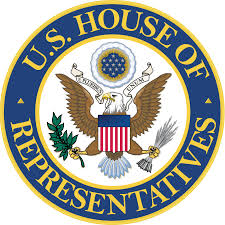Letter to the Communications and Technology Subcommittee, United States House of Representatives
Thank you for the opportunity to provide input for the revision of the US Communications Act.
Please allow me to provide a perspective as someone from outside the communications industry.
I am the CEO of a company that is dependent on access to Internet based services with increasing bandwidth, accessibility and at a steadily improved price/performance ratio.
Recently, I delivered a series of workshops on international business development for a group of Turkish software industry executives in Istanbul, Turkey. The workshops were sponsored by the Turkish Ministry of Economy and organized by the Turkish Exporters Association.
I happen to use videos in my training material. These videos are all hosted on YouTube. One of the videos is with Steve Blank, a US based expert on technology innovation and startups.
On a Wednesday in April as I was delivering a presentation to 20 software industry executives in Istanbul the videos suddenly wouldn’t play. The Turkish government had decided to block access to a number of US based services delivered through the Internet. YouTube was one of them.
I was unable to deliver my lectures as planned and Steve Blank didn’t get the promotion he would have enjoyed.
Later the same day I was preparing some internal communication to be posted on our Intranet, which is based on Google Sites. Due to Internet access restriction imposed by the Turkish government I couldn’t get access to Google Sites. I had to wait until I was outside of Turkey before I could post my message on our Intranet.
My two examples show that in a world where software and content are delivered through the Internet, free trade is easily impacted by erratic political measures jeopardizing the commercial interests of private enterprises.
The growth of businesses delivering services and content through the Internet (irrespective of the underlying “transport” technology) is dependent on steadily increasing “transportation” bandwidth and declining “transportation” cost. Based on my Turkish experiences we can also add unrestricted access.
 I run a small consulting company with operations is Europe and the USA. My company is operated through a cloud-based infrastructure using LinkedIn, XING, Facebook, Twitter, Vimeo, YouTube and Google for promotional purposes. We use Basecamp, Highrise, XERO, Billys’ Billing, 14Dayz, Skype, WebEx and Google Apps as our operational platforms. The bottom line is that without a well performing, affordable and accessible Internet we cannot function. We will become unable to serve our clients and we will not be able to give business to our suppliers.
I run a small consulting company with operations is Europe and the USA. My company is operated through a cloud-based infrastructure using LinkedIn, XING, Facebook, Twitter, Vimeo, YouTube and Google for promotional purposes. We use Basecamp, Highrise, XERO, Billys’ Billing, 14Dayz, Skype, WebEx and Google Apps as our operational platforms. The bottom line is that without a well performing, affordable and accessible Internet we cannot function. We will become unable to serve our clients and we will not be able to give business to our suppliers.
I enthusiastically welcome the initiative taken by the House Energy and Commerce Committee Chairman Fred Upton and Communications and Technology Subcommittee Chairman Greg Walden to reform the Communications Act of 1934. The overall objective must be to maintain the incentives for private enterprises to keep investing in a steadily improving capacity of the Internet while securing a healthy competitive environment driving down the price/performance ratios.
The market for services and content delivered through the Internet is truly global. However, the EU and US are caught up in an irrational discussion of net neutrality that unfairly focuses on Internet service providers.
The real threats to Internet freedom are not companies who have to live by market forces, but rather governments, which in many countries routinely block content and services. As such, I believe the US Congress needs to be careful about giving the FCC too much power to regulate the Internet. The best policy is to make a single regulatory framework for all communications providers. If there are to be net neutrality rules, then they have to be applicable to all players in the Internet value chain.
Keeping in mind the Communications Act and encouraging competition, the objective is to make a level playing field for all Internet and communications services. This means retiring obsolete regulatory silos for different communications services. The same laws and standards need to apply to all players, whether operators or over the top providers. A simplified, standardized, consistent, and transparent framework is best for competition, industry, and consumers.
The market led, technology neutral approach is the best method to support the competition on which my and million of other small businesses depend.
Yours sincerely
Hans Peter Bech
CEO, TBK Consult Holding ApS









